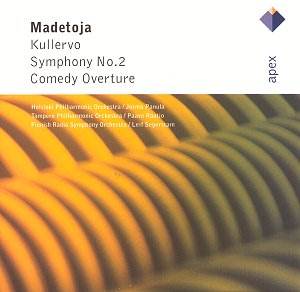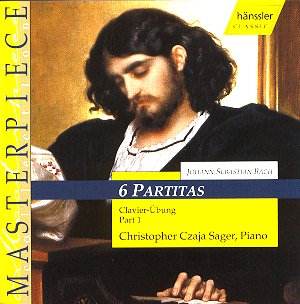 Composer: Leevi Madetoja
Composer: Leevi Madetoja
Works: Comedy Overture (1923), Kullervo – Symphonic Poem (1913), Symphony No. 2 (1918)
Performers: Helsinki Philharmonic Orchestra/Jorma Panula (Comedy Overture), Finnish Radio Symphony Orchestra/Leif Segerstam (Kullervo), Tampere Philharmonic Orchestra/Paavo Rautio (Symphony No. 2)
Recording: Rec 1978 (Symphony No. 2), 1985
Label: Warner Classics Apex 0927 43074 2
Leevi Madetoja, a significant figure in Finnish music, straddles the line between Sibelius’ expansive landscapes and Tchaikovsky’s emotional depth. His works, particularly the Symphony No. 2 and the symphonic poem Kullervo, reflect a rich tapestry of Finnish identity and romanticism, echoing the landscape and cultural nuances of his homeland. This recent release from Warner Classics serves as a reminder of Madetoja’s contributions, showcasing pieces that reveal his unique voice and his connections to both his predecessors and contemporaries.
The performances on this disc offer a fascinating array of interpretative choices. Jorma Panula’s reading of the Comedy Overture is brisk and unembellished, capturing its lively spirit while avoiding overindulgence. The orchestral balance is commendable, with woodwinds shimmering against a backdrop of bright strings, although one might wish for a touch more vigor in the faster passages. Leif Segerstam’s interpretation of Kullervo is striking in its intensity; he draws upon the Tchaikovskian elements to create a deeply emotional experience. The work’s dramatic arcs are executed with a palpable sense of urgency, particularly in the climactic moments, which resonate powerfully within the orchestral fabric.
Paavo Rautio’s handling of Symphony No. 2 stands out as a pinnacle of the recording. The opening movement evokes an idyllic Finnish lakeside, where the gentle undulations of melody draw listeners into a serene soundscape. Rautio expertly shapes the primary theme, allowing it to breathe and develop organically without succumbing to excessive ornamentation. His interpretive restraint pays dividends, particularly in the Andante, where the woodwinds emerge with a lyrical clarity that beautifully contrasts with the orchestral body. This nuanced approach invites comparison to Sibelius’s symphonic language, yet Madetoja’s voice remains distinct, infused with a warmth and romanticism that is uniquely his own.
The sound quality of this recording, while reflective of its age, holds up remarkably well. The engineering captures the orchestra’s sonority with a commendable clarity, allowing the listener to appreciate the intricate interplay of textures. The recordings drawn from the Finlandia catalogue evoke a sense of nostalgia for long-time collectors, while the performances themselves feel fresh and engaging. Although there are alternative recordings available, including complete cycles from Finlandia and Chandos, this disc offers a compelling case for Madetoja’s significance, particularly for those who appreciate the Finnish repertoire.
Madetoja’s Symphony No. 2, in particular, transcends its historical context, revealing a composer whose music, while deeply rooted in the early 20th century, resonates with timeless appeal. The integration of idyllic and tragic elements in the finale, reflective of the tumultuous years during which it was composed, reveals a sophisticated emotional landscape. Comparisons to Sibelius’s first three symphonies and Tchaikovsky’s Fifth are insightful; however, Madetoja’s distinct voice shines through, offering an emotional richness that is both engaging and profound.
This collection stands as a testament to Madetoja’s artistry, showcasing his ability to meld lyrical beauty with dramatic intensity. The performances, while perhaps older, possess a vitality that makes them invaluable additions to any collection. For those intrigued by the Finnish symphonic tradition or seeking to explore the often-overlooked treasures of early 20th-century music, this release is an essential listen. The disc not only enhances understanding of Madetoja’s oeuvre but also affirms his rightful place alongside the giants of Finnish music.



